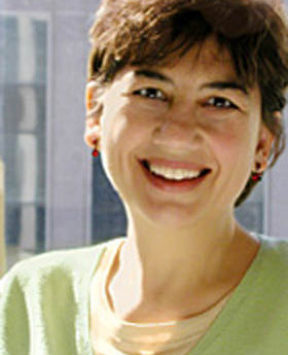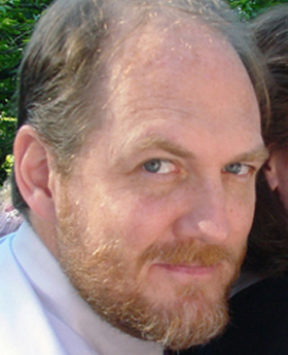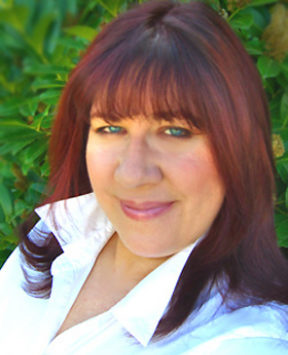Whats in a name? When it comes to choosing and secur-ing a top level domain name (TLD), the part of a web address that comes after the dot, gone are the days when you only had to worry about .com, .net and .org.
ICANN, the Internet Corporation for Assigned Names and Numbers, announced last year they will be rolling out the new extensions: .info, .biz, .name, .coop, .museum, .pro, .aero and .biz.
The non-profit ICCAN manages the Nets domain name system as well as the Internets root server system, IP address numbers, protocol parameters and port numbers, and is chaired by none other than inventor of the Internet, Vint Cerf.
The arrival of new TLDs only seems to have made the process more difficult and confusing. The big question is whether or not to register anything more than just .com. NetNames, a domain name management specialist, reports that 80 percent of the worlds top brands have already registered their .info domain name.
To debate whether there is a need for new top-level Internet domain names, we convened three Tacoma Internet leaders.
Joey Caisse is CEO of Web-X.com. The WSU graduate launched Web-X in 1995 with then-college roommate Scott Anderson, who is CTO.
Ron Ehli is CEO of PayByCheck.com. The Tacoma-native started Paybycheck seven years ago and it is one of the early dot coms that is surviving and thriving.
Rob Greenlee is host of technology talk show WebTalkGuys Radio on KLAY 1180 AM and Marketing Director for PDConcepts.com.
Together they pondered if new domain names are about the almighty dollar, whether they make it easier for users to navigate the Internet, and whether the expanded number of top-level domains give businesses a better chance at getting desirable URLs or complicate the process of protecting their corporate trademarks?
R. Greenlee: Everyone has heard of dot com. But have they heard of dot biz? Are we all getting taken advantage of by the roll out of these new top-level domains?
Ehli: I think there is going to be confusion as these new domains roll out. One of the problems were going to see is redundant names with the .biz, .com and .org and no one is really going to be sure where to go for information.
Caisse: Ill take the opposite side. I honestly dont think it will be that bad. I think .info, .biz, .name, .coop, .museum, .pro, .aero and .biz is a good thing. Think of them as area codes. It will take some adoption time. For instance, in Washington we had 206, 253, we added 360. It took awhile for people to get used to it but it does expand the amount of phone numbers available to us.
Ehli: Unless you force .com to become strictly a commercial domain, it will be a confusing because you have all these private Web sites that are .coms. Now if you force private sites to reregister as .name, then it will make sense. But then there is the confusion about the four-letter extensions. People are used to the three-letter extensions like .com and .net. It goes all the way back to the DOS days when files had three-letter extensions. So you throw into that .coop and .museum and create confusion.
Caisse: Yeah – .museum. Cmon guys!
Ehli: Another confusing domain is .pro. Theyre limiting that to accountants and lawyers. What about all the other professionals out there? It should be open to any registered professional business. Keep some consistency and then it will make more sense.
Caisse: What we need to do is get the ICCAN to stop smoking crack.
Ehli: Youre up on all the good rumors, arent you.
R. Greenlee: Having all these different domain names is great if you can categorize Internet content by that use, but the Internet has not been used that way.
Ehli: It was supposed to be, but it was never enforced.
Caisse: .edu and .gov is enforced. But how do you draw the line? Am I a .biz or a .pro? I guess we know who is to say: ICCAN. But do we want to put our trust in they guys who came up with .aero?
R. Greenlee: Lets think about a major corporation like Coca-Cola. Those companies are going to feel a need to get those other domains to protect their trademark. Is that really what this is all about?
Ehli: Whos doing to make the money? The attorneys that are hired to protect those trademarks. Paybycheck already owns 120 different domains, mostly to protect our trademarks. This is only going to exacerbate the whole problem.
Caisse: Theres no simple solution. I dont think it will be able to be enforced. I think the new domain names are going to continue to come out. For instance, Prince.com – who gets it: The singer or the tennis racket manufacturer? The lawyers are going to be the ones making the money at the end of the day.
R. Greenlee: The others that will make money are the companies that do the registrations. They have a vested interest in having a bunch of new domain names out there that they can sell since all the good .coms are taken.
Ehli: If you enforce everyone with a private site to use .name, then youll free up millions of good .com names. But I dont think that will happen.
R. Greenlee: Analysts from Gartner Research said that some of the big companies are going to spend about $70,000 a year just in domain name strategies to keep up with these new domains.
Ehli: Keep in mind, these are only seven new top-level domains. Theres a whole list that theyre going to step out as time goes on. If you buy up your seven new TLDs to protect your trademark, then seven more come out next year and you have to do it all over – and then you have to renew them all each year.
Caisse: Maybe someday well see the silver lining in all this in that the Internet is based on the freedom of a kind of chaos in the way that it works. This is appearing to be no different, where there is no one clear-cut solution. Im hoping there is going to be a .kids and perhaps a .adult so we can make the Internet a safer place for people to go. I think this could be more enforceable.
Ehli: But you have to make those enforcements retroactive. As people renew their existing domain names, if they dont fall into the new guidelines, force them into another domain. Then theres the trademark issue. The Trademark office doesnt recognize the TLD as part of your trademark. For instance, PayByCheck is our trademark. Whether it is a .com, .net or .whatever, our trademark is just our name. People dont understand that so they run out there and buy that domain name with a different TLD and they think they can use it. Therefore, the attorneys!
R. Greenlee: Are you guys going to pick up on these domain names as the are available?
Caisse: Were not going to.
Ehli: Absolutely not!
Caisse: If you have a company like RCA or Virgin Records, worth a billion dollars, youre going to go out and spend extra money on the stuff and it doesnt make any difference to you at the end of the day – thats coffee change.
Ehli: And buying and managing those domain names is cheaper than having your attorneys go to court.
R. Greenlee: Are these companies going to be promoting their other domain names or just hoarding them as a safety blanket?
Caisse: They wont. Why create confusion in the market place?
R. Greenlee: What do you think is the future of domain names?
Caisse: In my opinion, I think youre going to see 30 to 50 top-level domain names. Theyre not going to stop with these seven. In doing that, you will decrease the market for purchasing them with a lot of people. Spending $35/year for 50 top-level domain names is going to get pretty expensive pretty fast.
R. Greenlee: Theres been a corresponding movement of removing the whole association with the dot and going to real names. The domain issue is just removed.
Caisse: Death!
Ehli: Ive always liked real names but the problem is the limited availability. Remember, a domain name is just a simple way to remember your real Internet address. If I said Go to our 208.49.29.142, youre going Huh? Joeys right. Theres going to be a lot more TLDs coming out. If we can organize it and make some meaning out of it, its good. If it stays chaos, its bad.
A full audio interview with Brandon Fix can be heard at:
www.webtalkguys.com/domain-mikedaisey.html.
Dana Greenlee writes about technology every Friday in the Index. WebTalkGuys, a Tacoma-based commercial-free talk show which features technology news and interviews, can be heard Saturdays from 11 a.m. to noon on KLAY 1180 AM in the Tacoma/Seattle area. Past show and interviews are also webcast via the Internet at:
www.webtalkguys.com.
The name says it all: New domain name confusion
Tags: .com, .net, .org, aero, Brandon Fix, ceo, clear-cut solution, Coca-Cola, CTO, Dana Greenlee, director marketing, domain name management specialist, DOS, ICANN, Internet content, Internet Corporation for Assigned Names, Internet Domain names, Internet leaders, Internets root server system, Joey Caisse, KLAY 1180 AM, NetNames, Paybycheck.Com, PDConcepts.com, Prince, private site, RCA, real Internet address, Rob Greenlee, Ron Ehli, root server system, Scott Anderson, Seattle, singer, Tacoma, technology news, technology talk show, top-level domain, USD, Washington, web address, Web-X.com, WebTalkGuys, WebTalkGuys Radio, WebTalkGuys Radio on KLAY, www.webtalkguys.com, www.webtalkguys.com/domain-mikedaisey.html






